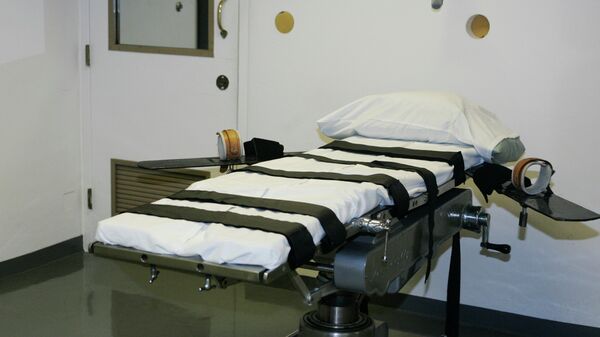Kelly Gissendaner was scheduled to be executed at 7 p.m. on Monday for the murder of her husband, but the drug, pentobarbital, appeared cloudy, prompting officials to delay the execution out of an “abundance of caution,” said Georgia Department of Corrections spokeswoman Gwendolyn Hogan.
“Prior to the execution, the drugs were sent to an independent lab for testing of potency. The drugs fell within the acceptable testing limits. Within the hours leading up to the scheduled execution, the execution team performed the necessary checks. At that time, the drugs appeared cloudy,” she said.

The execution was originally scheduled for Feb. 25, but was delayed due to a winter storm.
Gissendaner was convicted in 1997 of masterminding the murder of her husband Douglas Gissendaner. She later returned to the scene and helped destroy the evidence.
While incarcerated for nearly 20 years, she claims she is a changed person. She earned a certificate in theology, held bible classes and counseled inmates.

Religious groups argued that her spiritual changes warranted stopping the execution.
Her lawyers had filed an emergency stay with the state’s pardon and parole board, but were denied clemency, clearing the way for her execution.
“The sentence is appropriate for the crime that was committed and the circumstances of this case, and really, what she’s done since, is almost something that does not need to be considered,” said Danny Porter, Gwinnett County District Attorney.
Gissendaner has asked the US Supreme Court to act, but the high court has not responded yet.
Kelly Gissendaner is the only woman on Georgia’s death row. Should her execution at the state prison be carried out, she will be the first woman to be executed in the state since 1945 and the 16th in the country since 1976.
The number of executions throughout the US has fallen to its lowest level in years, due to states finding enough approved drugs to use in the lethal injection cocktails.
Last April, Oklahoma inmate Clayton Lockett was writhing on the gurney, mumbling and visibly gasping for 43 minutes after being injected with the sedative midazolam.
Oklahoma Governor Mary Fallin ordered a complete review after the Lockett execution.
Eight months later, the state resumed executing its death row felons using lethal injections, using the same sedatives that had caused problems during Lockett’s procedure.



